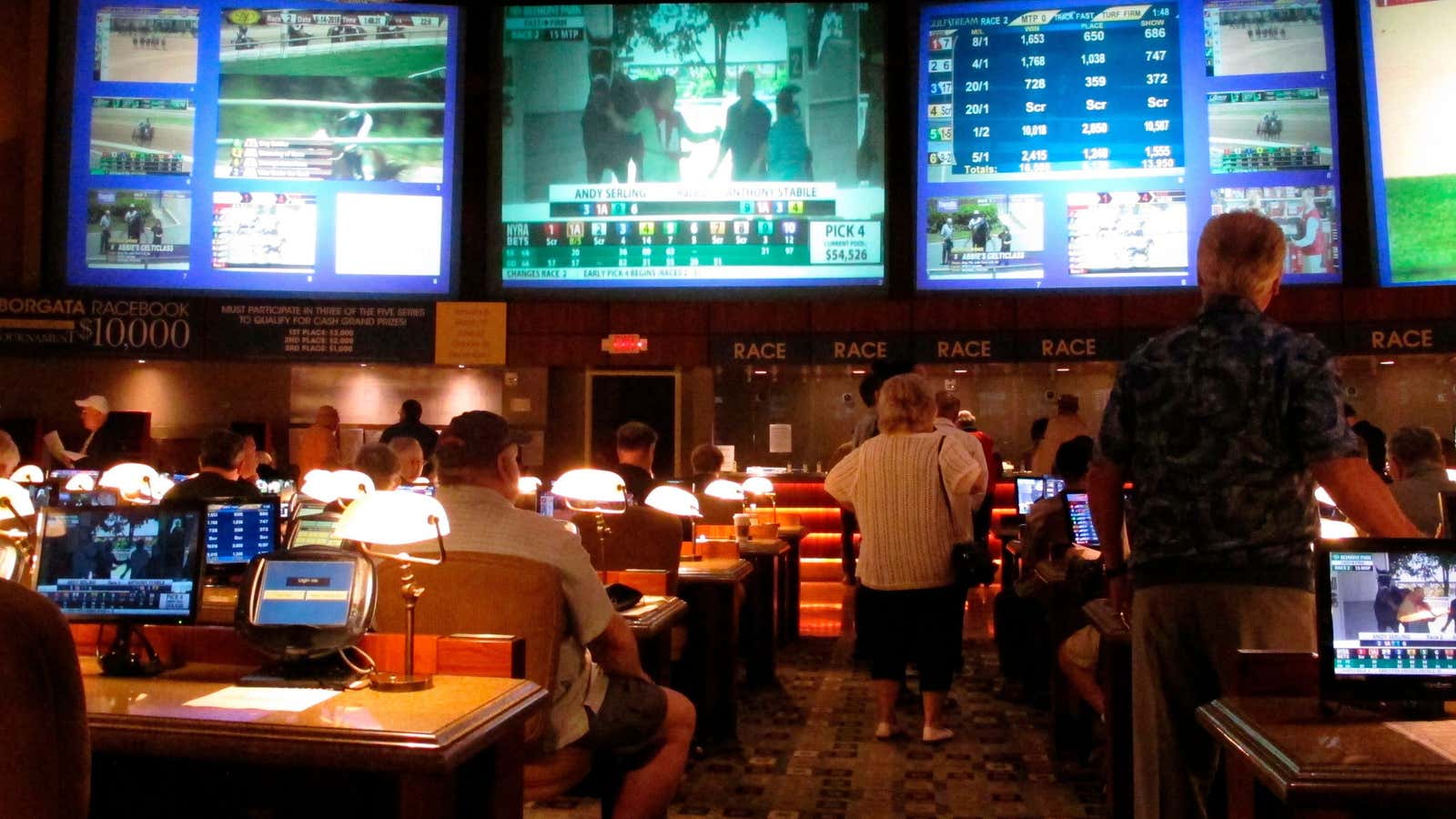When the US Supreme Court struck down a federal law banning sports betting in the US in May, football fans across the nation rejoiced.
Betting on football, not following baseball, is America’s true pastime. Vast sums are wagered every season: estimates says $88 billion are bet on college and pro football though offshore online accounts annually, far in excess of the $2 billion bet legally in Nevada, the only state where sports gambling has been permitted in the past few decades. And that $88 million doesn’t include bets placed in office pools or with neighborhood bookies.
While the illegal nature of sports betting doesn’t seem to have deterred too many US gamblers, all things being equal, most would probably prefer to be on the right side of the law. In theory, the Supreme Court decision cleared the way for UK-style local betting shops in every town and even gambling at sports bars like Buffalo Wild Wings. Online sports gambling is poised to explode.
But the floodgates have yet to open, and this football season, US bettors will still have only a handful of options for placing lawful wagers. For most gamblers, legal sports betting is still years away, a result of the convoluted patchwork of state laws that regulate gambling.
When the Supreme Court ruled in May, it notably did not legalize sports betting in the country, but merely struck down the federal law banning it, saying it was a matter for individual states to decide what they wanted to do from there. For states with long-established casino industries and licensing procedures in place, permitting casinos to open sports books was no big deal. New Jersey, the state whose push to overturn the federal ban prompted the court ruling, was up and running in June, and now has six casinos and two race tracks offering sports betting. Almost $60 million in sports bets were placed through the end of July.
Delaware and Mississippi also got out of the gate early, making betting in casinos available starting this summer, according to ESPN. West Virginia is like to be next: at least one casino in the state is scheduled to begin taking sports bets on Sept. 1. A handful of other states, led by Pennsylvania and Rhode Island, are close behind, although unlikely to be ready by the start of football season. Following them are about 20 states with bills working their way through various legislatures, and then another 25 states where no bills have been introduced (and in some states, like Utah, may never be).
In many states, the sluggishness is part of the normal stop-and-start legislative process, where bills are subject to pressure from various interests and lobbying groups. For example, Major League Baseball and the National Basketball Association have hired lobbyists in states where bills are pending, arguing they deserve a cut of any gambling revenues collected based on bets placed on the teams and players in their leagues.
Once the laws are on the books, prospective sports-betting operators are likely to face onerous licensing procedures from state gambling commissions. Regulations could require hefty fees for a sport betting license, plus a tax on revenues (New Jersey levies a 8.5% tax on the money the casino wins from gamblers). Extensive background checks for operators is standard procedure in those states that already allow gambling. And the process is even more complicated for the hundreds of Native American tribes currently operating casinos.
Nevertheless, given the demand, legal sports betting is probably coming to a town near you at some point. Just not in time for the NFL season kickoff Sept. 6.
